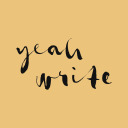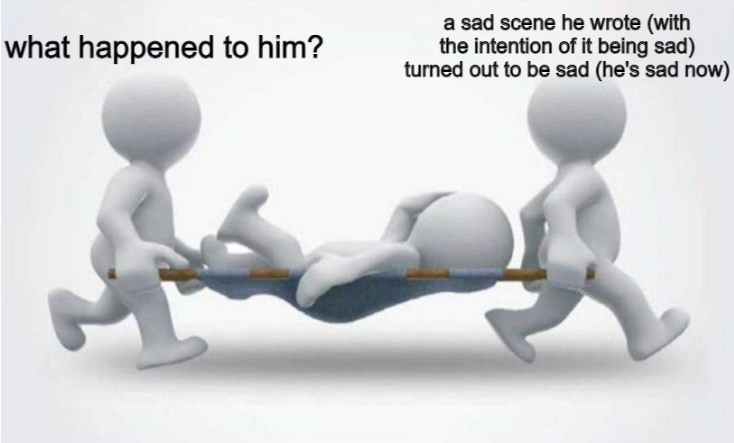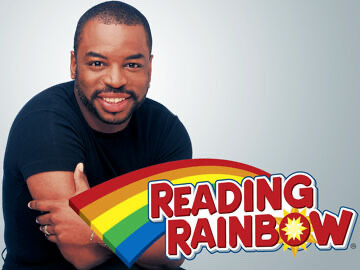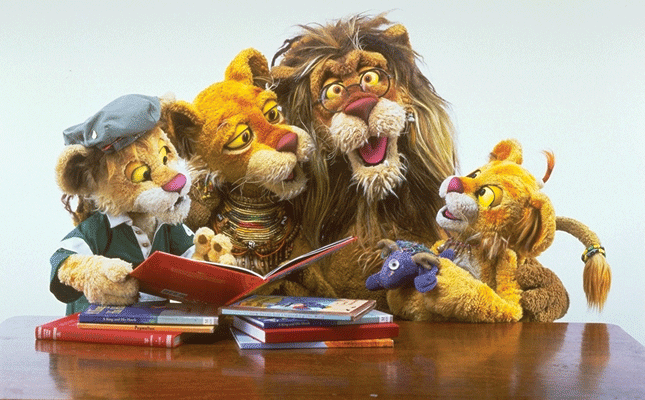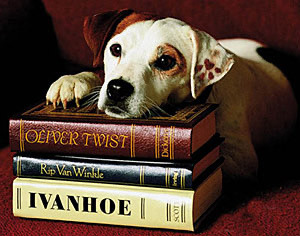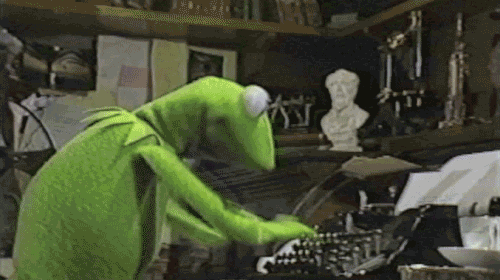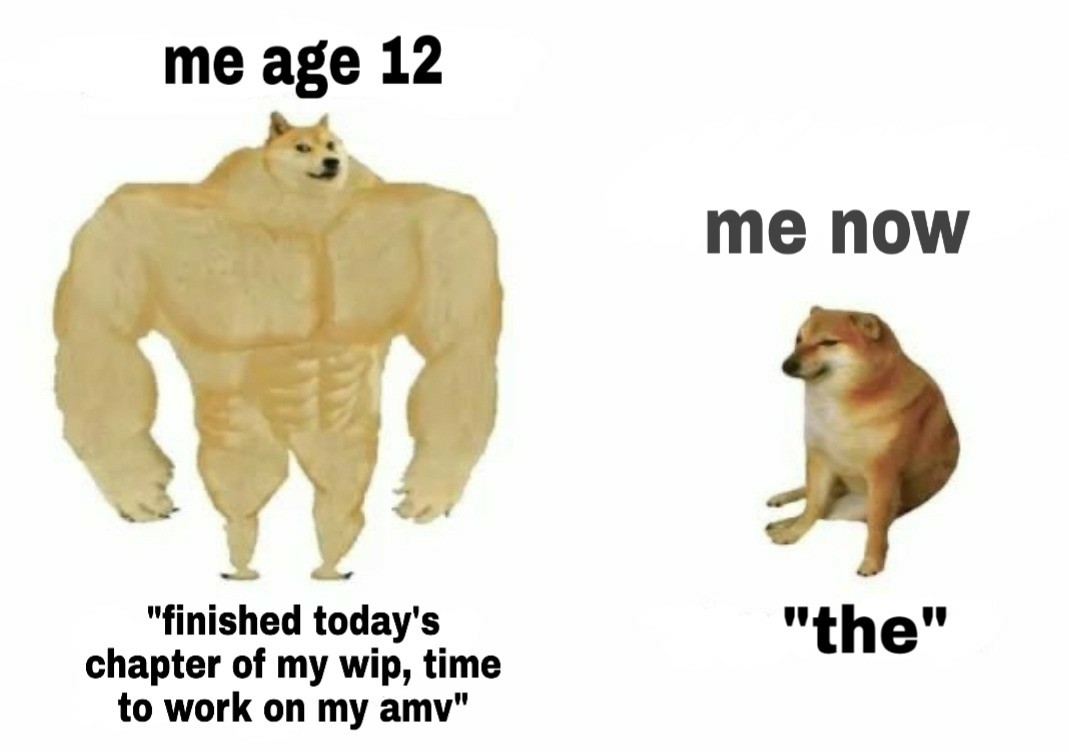Self-Publishing vs Traditional Publishing

Time to write-in, as Liv said. :)
Liv covered things flawlessly on the traditional side. She has the benefit of “workin’ in duh biz” and knowing all the mechanics behind the scenes. So I’ll provide the counter-point, as I’m currently releasing my own series of novellas independently. You can check that out over here (hint hint, wink wink) if you’re interested. Here, however, I’ll be tossing out the basic schema of how self-publishing works.
____________________
Self-Publishing is basically the DIY version of traditional publishing; the difference between buying a table from IKEA, and hand-crafting your table from scratch. It’s for authors who either want to make it big on their own, don’t want help publishing their book, want a lot more money from selling their book, or don’t want publishers altering their book. The actual process of self-publishing is surprisingly simple: write, edit, release. There are no queries, no submissions, no legal documents; just good ol’ fashioned writing. Most self-publishers digitally release now adays, through places like Amazon, the Nook store, the iBookstore, Kobo, and Smashwords. As Livia has shown us with the release of the Yeah Write Review, it’s also possible to make print copies through MagCloud, Lulu, among many more.
This independence is why self-publishing seems so tempting to many, but there is a dark side…
The dark side being the DIY part of the publishing method. You are legitimately on your own. You have NOBODY but yourself. No editors, no copy-editors, no test-market readers, no marketers, no cover artists, no officials. Only you, you, and you. That means that if you hope to self-publish, you have to be VERY COMMITTED, and realize that from the moment you begin, you are entering a cold and barren wasteland of bleakness and aloneness. A self-publishing author has to be very comfortable with the idea of working on their own, and they also need to have all the skills that all their counterparts in traditional publishing have. Because as much as some authors like to prance around and sing the praises of bucking the system and giving a finger to “The Man,” traditional publishing has a purpose, and it’s really good at achieving its objective of selling lots of books.
What skills does a self-publisher need? Frankly, a lot. You need to have a very strong writing style. I cannot emphasize the word strength enough. You need to know what you’re doing before you start. If you’ve ever been told that your story structure is kinda “meh,” or you make a lot of simple errors like tense-switching or comma-splicing, be warned: this might not be for you. If you’ve never submitted to a magazine and have been published, or have been complimented by professional writers (not your mom or your friend), be wary of your own writing skill, because it’s often not as strong as most people think. You need to know how your language works (high vocab, advanced punctuation, sentence/paragraph orientation, et al.), know the mechanics of storytelling (structure, pacing, composition, char-dev, et al.) as well as know the aesthetics of storytelling (mood, emotion, symbolism, story-arc structure, et al.). If you don’t know all varieties of these writing skills at an expert level, you will be writing a sub-par story, which is a bad place to begin from a self-publishing perspective.
You also need to be able to flip-flop roles. Writing is only the first step of a longer process, and nobody is helping you in the process. You need to have skill at editing, and editing your own piece (not as easy as it sounds). You need to have strong artistic skill, particularly graphic design for your covers, but also if you want illustration in your books. You need to research how marketing works, and lots of research on economics of bookselling, and how much books should cost (which is highly controversial at best). You need to research your options for self-publishing (printing vs digital, where to sell, publishing traps), and you need to research how to sell (sales, pricing, generating audience, etc.).
To be entirely truthful, the majority of authors do not want to self-publish, even if they think they do. It’s hard work. I released the first episode on my short story months ago, but have been stuck in limbo making constant mistakes on the marketing end of my release - turns out it’s really difficult to aggregate a free story across digital distributors. I have been working toward self-publishing for three years, however, so I’m committed. But if you just want to have people pick up your book and read it, and say “Dat wuz da best book evar,” this may not be the road for you.
But it’s not all doom and gloom. I can do whatever I want with my story! The first 3 episodes of my novella series are going to be free, because I want them to be free, and if I want to talk about a topic in my books, nobody can say “don’t do that - don’t take that risk.” :) Working on your own also means building connections. It forces you to meet other authors, editors, beta-readers, and artists. You learn to ask for handouts and favours, and make promises to return them in kind. An old graphic design friend did the beautiful middle-eastern styled covers for my books in the exact minimalist style I wanted. I sent the early manuscript of my story to several writers and friends to beta-read and critique me, which has changed the story a lot, for the better. And when I finally begin selling my series for profit, I get all da moniezzzz. Self-publishing is a test of commitment. It’s not easy, but if you get through the process, it’s thoroughly rewarding.
Pros: You get all the control, and all the rewards for success.
Cons: It’s extremely easy to fail, and the amount of knowledge you have to learn before jumping in is daunting at best, and insurmountable at worst.
_____________
I used to be the opposite of Liv when I was a younger, more naïve author. I said, “Screw the system! I want to do this myself!” I couldn’t stand traditional publishing, and wanted to do it all indie. Now, having done it all indie, I see the value in a traditional publisher, and actually kinda prefer it. Traditional publishers are still around because the serve a strong function. But at least now we do have the option of going lone-wolf with our books.
